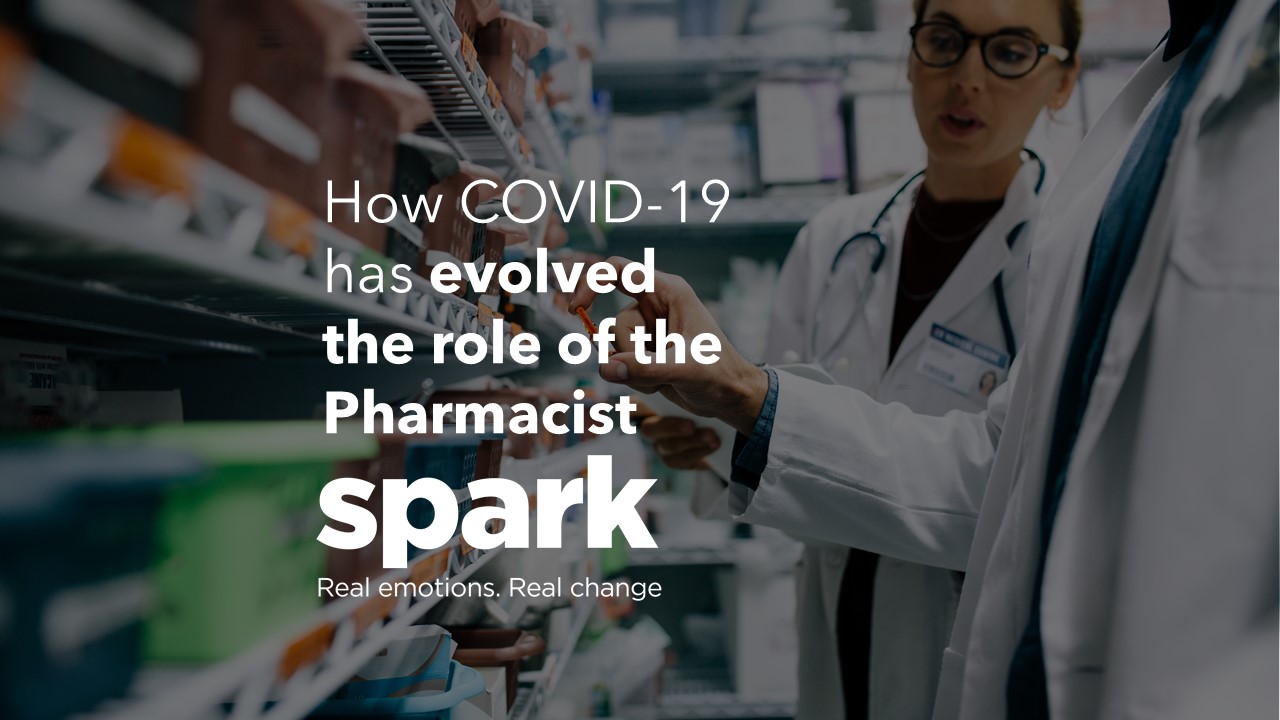Medical advice is something that has long been trusted and accepted as gospel, and therefore the Pharmacist can play a significant role in the medication consumers purchase, particularly when it comes to sensitive categories, or symptom-driven shoppers who are seeking the most effective treatment rather than a specific brand. However, in more recent times, the interaction between Pharmacist and customer can be seen to have become very transactional, with the customer often controlling what and how much they purchase.

Pharmacists are often underutilised by consumers in the healthcare sector
Despite the capacity Pharmacists have in diagnosing and treating people, as a general trend the public tend to head straight to a GP, and as Dr Zubair Ahmed (Co-founder and CEO of Medicspot) found in a recent survey, 73% of pharmacists believe that the public are generally unaware of what pharmacists are capable of. More recently and brought on by the Pandemic which exposed, as well as exacerbated the limited availability of GP appointments, work is being carried out to closer integrate pharmacists and GPs in the form of Primary Care Networks.
Pharmacies operate longer hours as well as during weekends and can thus offer significantly more extensive care than GP’s and could help to resolve the GP back log of patients. Advancements in technology have made this increasingly possible and have led to some innovative solutions being put in place. Dr Ahmed explains that in 2016 Medicspot become the first health care provider to utilise Pharmacy consulting rooms as virtual clinics where patients can get seen by a clinician via video link, a scheme that now operates in 300 independent pharmacies across the UK.
In the past, the online channel has played a relatively minor role in terms of the pharmaceutical industry, particularly with regards to prescription medication. Many consumers did not trust or feel comfortable purchasing such items online and would instead opt for in-person shopping at a pharmacy, where they would have direct access to a Pharmacist for advice and guidance.
Like other industries, healthcare has had to evolve
In more recent times, and specifically, following the outbreak of the pandemic, the healthcare industry has been forced to evolve, and in correlation with many more people shopping for medication online, we have seen rapid growth in the use of the aforementioned virtual Pharmacist. Whilst it is evident that people are open to online shopping and are willing to share their data now more than ever, the Pharmacist remains a necessary institution for many, making the move of such a service to an online platform a vital progression.

The online channel has evolved for consumers
However, with the acceleration of online shopping, we are also seeing a trend of higher autonomy amongst consumers, and this has been particularly noticeable in terms of healthcare. Even before COVID-19 spread across the globe, over 67% of people were researching their health symptoms online, and there has been a rapid increase in the proportion of people using health monitoring devices to track their own health.
Iquivia Consumer Health notes how this technological growth, alongside people managing their health with more non-prescription products (due to the general wellbeing trend and increased purchasing of vitamins and supplements), has ‘created an environment where the consumer healthcare journey is shifting to the digital sphere’. This self-diagnosis and monitoring begs the question as to whether Pharmacists are actually as relevant as they once were.
Where we have seen categories such as grocery, clothing and music move to e-commerce in order to satisfy the growing demand for convenience, Iquivia suggests people are now seeking the same sort of service for more complex categories such as OTC, medical devices, and prescription medicines.

What this means for the future
In summary, COVID has accelerated trends that were already growing, such as telemedicine or online consultation with doctors and pharmacists, a transition that was expected to take years and has now happened in a matter of a few months.
These transitions within the healthcare industry are vital in order to keep up with shoppers changing attitudes, and whilst the institution of the Pharmacist remains an important and trusted service for consumers of certain health categories, the evolution of its framework it vital. It is a pivotal moment for the healthcare industry and thus more important than ever to gain insight into its consumers adapting perceptions and behaviours.
How we can help
At Spark Emotions, we have conducted healthcare market research projects around the world truly understanding healthcare shoppers. We have proven methodologies that help us get to the real emotions of shoppers and our team of industry experts are able to translate these insights into actions, giving our clients the ability to make changes that will drive growth.
Sources:
Dr Zubair Ahmed, Pharmafield: Virtual Clinics in Primary Care (2020)
Iquivia Consumer Health, E-Pharmacy and the New Consumer (2020)
Get in touch by completing the form below

Written by Holly Adams, Research Manager at Spark Emotions.
If you have any questions, feel free to reach out to Holly via email holly.adams@sparkemotions.com or connect with her on LinkedIn






